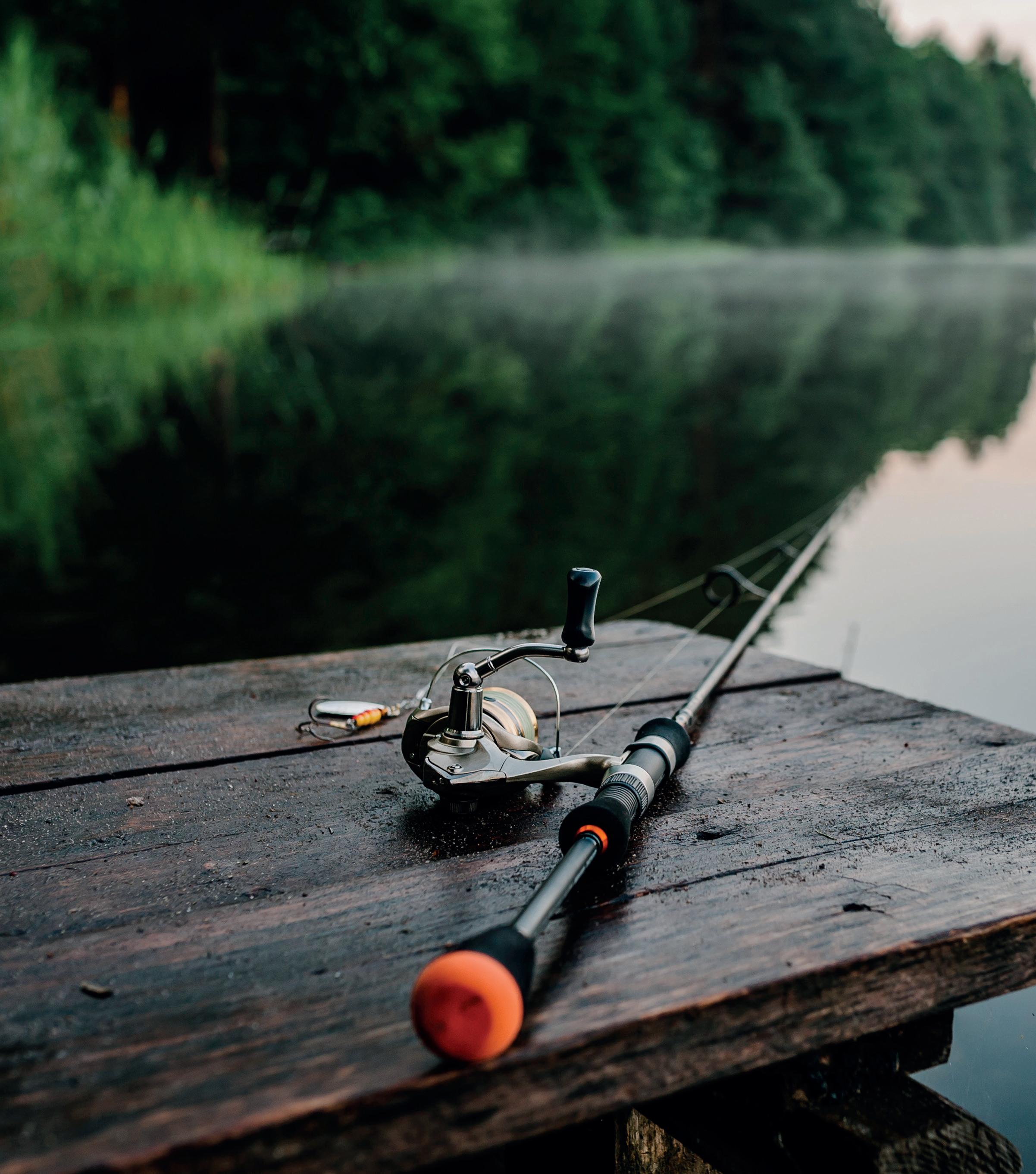
3 minute read
Using fishing to tackle mental health
Using fishing to tackle mental health
As part of our focus on ‘green care’, we speak to Lisa Wilson, a qualified children’s social worker who set up the John Wilson Fishing Enterprise. Focusing on the legacy of her late father, renowned fisherman John Wilson, the enterprise aims to promote the benefits of fishing within a social care setting.
What inspired you to set up the John Wilson Fishing Enterprise?
After the loss of my father John Wilson, who was aproud fisherman, the idea for the John Wilson FishingEnterprise (JWFE) was born; I wanted to recognisethe remarkable contribution that my dad had madeto fishing and enable children and young adults toexperience it. This is the type of social work that I wantto deliver, and it excites me.
Your mission is to help children and young adults cope with mental illness by teaching them the art of fishing. What are the benefits of this activity?
All of us within JWFE understand that fishing and beingoutside can have a positive effect on those strugglingwith their mental health. Our fishing sessions deliverbenefits to all anglers, regardless of their age.
Fishing has always promoted positive mental health, byallowing our anglers to relax, they will have a strongermindset when dealing with any issues they face.
The service is unique as each participant has the opportunity for an observational assessment to be carried out. What is the purpose of the assessment and how can they be used?
The assessment process allows the child or youngadult to leave with evidence of how it can promotetheir mental health. Often in social care, there is a lackof evidence of what the child or young person hasachieved. It can get lost in the system and cause abarrier for their future.
By evidencing what they are good at, it can be an itemto include on their CV or used as a character reference.The assessment can also build self-esteem andconfidence as they learn what they have accomplished.
A key factor is that participants are learning how to fish. How important is it that we start to use resources which not only empower children and young people, but give them confidence?
No matter how small the task, if they have observed,tried it, mastered it and can show others; it is a hugesuccess. They are learning one of the most basic andhistoric ways of living, which is an art form still usedacross the globe to feed families. It is evolution and ahistory lesson all in one.
You’re an advocate for outdoor living and the positive impact it can bring to children. How can the social work profession start to use local resources such as natural environments or ‘greenblue’ spaces to improve the levels of care offered to children growing up alongside the care system?
I had the luxury of growing up with parents who mademe go outdoors. However, I appreciate that we had noother distractions and it was a different life as far astechnology was concerned.
As adults, we need to get the balance right. We couldencourage or incorporate technology into the outdoorsto entice them and make it enjoyable for them. I wouldhighly recommend contacting the Angling Trust to findout what events they have planned in your local area.They often have a huge amount of fishing events thatare organised for everyone.
Can you tell us about your courses?
My courses are available as both half-day and full-dayworkshops. They include all fishing equipment (tackle,bait, whips, rods, nets etc) and coaching. Each sessionstarts with an opportunity for everyone to get to knoweach other and discover what to expect about theirfishing experience, allowing us to ensure we are givingthe right levels of tuition for that child’s experience.
Some of our courses will include a ‘bushcraft’ sessionand a nature walk – it’s about making the most of beingoutside as much as possible.
The cost is between £25-£30 per child for a half-daysession and £45-£50 for a full-day workshop, so it’s anaffordable initiative for social work teams to tap into.
You currently work in Norfolk (based at Barford Lakes and Taverham Mill Lakes). How can social workers tap into resources similar to this which allow children and young people to benefit from outdoor activities?
Many similar initiatives can be found through an onlinesearch. It’s great to see how many companies offeroutdoor activities. I believe anything which gets childrenoutside is important; that could be picnics, bike rides,bushcraft or nature walks.
Although the JWFE is based in Norfolk, we do haveplans to expand in time. If you’re looking for somethingin the meantime, I’m confident that there will be anabundance of fishing opportunities available.
Find out more.
Visit jwfe.co.uk to discover more about the John WilsonFishing Enterprise. For booking enquiries, please callLisa Wilson on 07515680348 or email lisa@jwfe.co.uk










